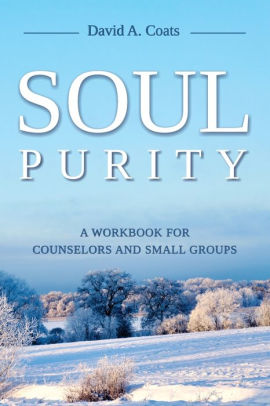The following is adapted from the new mini-book by Dave Coats:
Ephesians 5 has a powerful section of teaching by Paul in which he unloads an incredible command to husbands. They are to love their wives. But not just that. They are to obey in the same way or parallel to the manner in which Christ loved the church. And the specific manner is his giving of himself for her. Unfortunately, you may not remember many times that you heard this statement unpacked for men so that they could get a better understanding of what it would look like to live with and to love their wives in this manner. And honestly – we men need it laid out in clear, simple language. So the gospel, that Jesus came to die in our place so that we, the church, could be his bride, is directly connected to how the marriage relationship is to be experienced. In other words, wives should see the gospel on display every day through the way that their husbands love them. Sacrificial, servant-leader husbands will love their wives as they lead them on a daily basis. This is the good news that everyone of us need to be reminded of: Christ died “for us.” The self-denial reflected in Christ will help men love their wives well.
Consider some ways that the gospel was applied to us and could be reflected to our wives:
- He died “for us” while we were his enemies and opposed to him (Ephesians 2:1-4). Am I willing to sacrifice for my wife in this kind of way?
- We were people that wanted to go our own way (Isaiah 53:6). And yet God pursued us. Can I pursue my wife and care for her even if she is going her own way?
- We did not want God, his thoughts, or his ways (Romans 3:10-12). How can I show my wife what God did in coming to earth for us.
- We were only focused on what was best for us in our minds and thoughts. We were self-centered and blind. But after experiencing the love of God, I can show my wife what it is like to love her first and not wait for her to do things for me.
Think about ways that Jesus came in human form so that we would know a personal God:
- God’s love was evident in the miracles of Jesus. He cared about those around him. How will my wife know God’s love through my love towards her?
- Jesus prayed for his disciples. He listened and walked with them. He led them. Does my wife know Christ like discipleship in my praying and listening and walking with her?
- Jesus brought comfort to Mary and Martha. Does my wife know comfort in my personal presence and even sharing in her hurts and loss?
- Jesus paid attention to women and children, not just the men around him. Does my wife know that she matters in the grand scheme of life?
Think on ways that gospel living could show up through me to my wife:
- Will I care for my wife when she is sick or tired or emotionally drained?
- Will I respond well and help her when she is fearful or anxious?
- Will I embrace her physical and emotional changes on a monthly basis and still let her know I love her through these things?
- Will I encourage her faith in a gentle manner when her faith falters and she struggles with the realities of a sinful, fallen world? Will I be patient and longsuffering?
- Will I stand with her and act on her behalf when family or friends treat her poorly? Does she know that we are “one in Christ” and undivided before Him?
- Will I walk with her and notice the physical activities or responsibilities that she just can’t do or struggles to keep up with on her own?
- Will I help her know God’s design and plan for her and minister his love to her? Do I want above all that she will become more like Jesus by her knowing his love through me?
- Do I know what her personal walk with God is like on a weekly basis?
Consider the loving, servant-leader Jesus and what he was like. How will a husband follow Jesus in gospel living? Mark 10:35-45 shows us the attitude and actions of Jesus (the Greek word is diakonos) that are directly connected to the gospel. He came to “seek and to save” the lost. He was a diakonos kind of leader (defined as menial work).
- What tasks are menial, but that we could help our wives in doing?
- What kinds of acts, words, and deeds will speak volumes on a daily basis?
- How often do I ask how she is doing and care about how she answers?
- Am I willing to wash floors, dishes, change diapers, read to the kids, help change the sheets, get the kids out of bed, help them get ready for school, help with homework, prepare a meal, or clean up after the meal? (Just a short list of “menial” chores and tasks that need to be done.)
Consider what Paul says in Philippians 2:1-11 as he unpacks the picture of Jesus, the doulos kind of leader (defined as a bond-slave in the New Testament), who would accomplish our redemption. He laid down his rights and privileges for our sake and for our salvation.
- Can you turn off the email and the cell phone so you can engage with your wife?
- Do you demand your “rights” or do you lay them down in order to love like Christ did?
- Do you want special privileges as the man in the house – think of Jesus as the head of all things.
- Are you owed certain status as the husband or will you be like Jesus?
- Are you owned by Christ or by your own desires and passions?
- Is your stuff off limits to anyone in the house, including your wife?
- Do you know how to do everything in your power and ability to help your wife and make life better for her in how she experiences the daily events of your household?
- Is your “gospel love” for your wife one that will draw her to change and be like Christ?
So what now?
- I encourage you to start applying the gospel to your marriage and to the way you live with your wife.
- I encourage you to find someone who will keep you accountable to follow through.
- I encourage you to tell your wife that you will live out some of this truth starting tomorrow.
- I encourage you to buy the book. Share it with your small group. Challenge one another to live the way Jesus did. Do it for the glory of God and the good of your wife.
You can order the Gospel-focused Husband mini-book with all of the applications and illustrations here.



 of discouragement; but the emotion does not usually become debilitating. Discouragement is also generally confined to emotion. Depression in a very broad sense is a very different “beast.” It crosses over from emotion to dictate how we think, what we believe, and how we act. When discouraged, we usually continue our daily activities under a rather mild blanket of sadness. When depressed, we absolutely do not function or at least barely function. The level of irrationality and debilitation is profound.
of discouragement; but the emotion does not usually become debilitating. Discouragement is also generally confined to emotion. Depression in a very broad sense is a very different “beast.” It crosses over from emotion to dictate how we think, what we believe, and how we act. When discouraged, we usually continue our daily activities under a rather mild blanket of sadness. When depressed, we absolutely do not function or at least barely function. The level of irrationality and debilitation is profound. Think about the creation with me for a moment. God made the man and the woman to love, to worship, to serve, and to enjoy God. The focus was not on what they were like on the exterior, but the focus was simply how Adam and Eve could enjoy God from their hearts. God made the woman to know God, to love God, and to appreciate all of His ways and plans. God also made the woman to be a partner with man. Together they were to serve Him.
Think about the creation with me for a moment. God made the man and the woman to love, to worship, to serve, and to enjoy God. The focus was not on what they were like on the exterior, but the focus was simply how Adam and Eve could enjoy God from their hearts. God made the woman to know God, to love God, and to appreciate all of His ways and plans. God also made the woman to be a partner with man. Together they were to serve Him.


 I have been having an ongoing discussion with some folks about a topic that is rather critical to the mission of the church. The followers of Jesus Christ are called to go and to make disciples. That is the mission. And I think the disciples of the early church had a good understanding of what that meant. But somewhere along the line, the concept of going into the world, connecting with the world, and living alongside people in the world in order to draw them to Jesus as disciples, drastically changed.
I have been having an ongoing discussion with some folks about a topic that is rather critical to the mission of the church. The followers of Jesus Christ are called to go and to make disciples. That is the mission. And I think the disciples of the early church had a good understanding of what that meant. But somewhere along the line, the concept of going into the world, connecting with the world, and living alongside people in the world in order to draw them to Jesus as disciples, drastically changed.